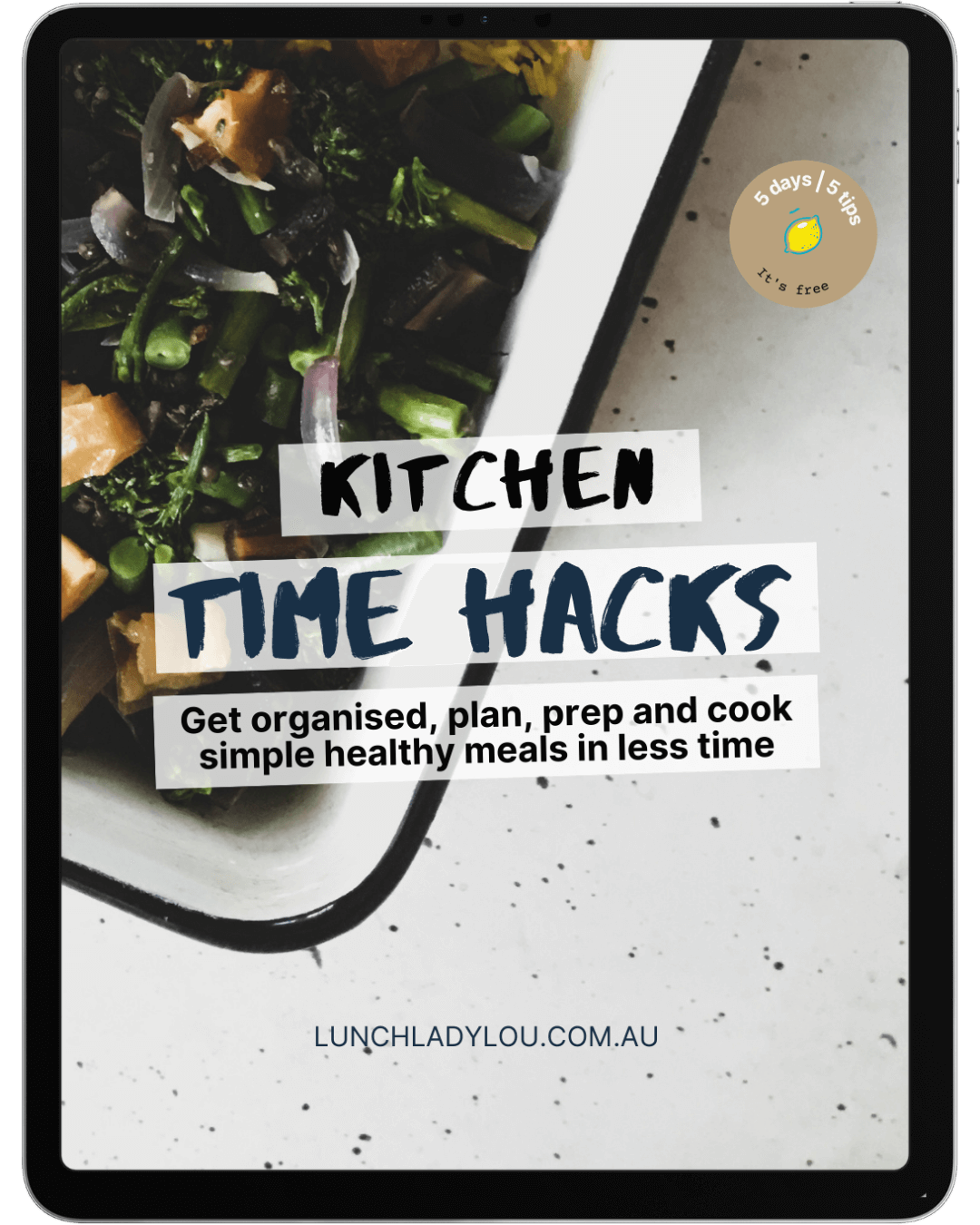10 ways to save money on your grocery bill
In today’s episode I’m talking about 10 ways to save money on your grocery bill. You’d have to be living under a rock to NOT notice the grocery prices right now.
In my latest Instagram poll – 98% of people said they wanted to save money on their grocery bill. Prices going up and products missing from the shelves (making it hard to substitute if you don’t have the skills) are two common complaints I’m hearing.
And there’s so much chatter online about ways to save money on your bill but they all include swapping items for cheaper products – cheaper in QUALITY as well as value. I’m all for spending less too but I’ll rarely do it for qualities sake. So how do I save money on my grocery bill without changing my diet to rice, margarine and thinning out every meal with extra lentils?
Watch the full episode here
10 WAYS TO SAVE MONEY ON YOUR GROCERY BILL
Before we get into it. I’m a part of the Aldi Mum’s Facebook group. I use it for a multitude of reasons, including giving back and helping where I can. A common thread I see in this hyper-focused group dedicated to a bargain is a lack of understanding about food and cooking. They’re so hell bent on the bargain and the rising prices all they’re doing is trying to buy a cheaper product without taking into account HOW and WHAT they buy and HOW they cook the product is paramount.
For example: raging about a price increase on a marinated chicken $25 a pop. When they could make the marinade for $1 and buy double the amount of chicken for $9. Saving $15 and yielding a whole extra dinner.
And while we’re not taking any nuance into consideration like; maybe marinated chicken night is the night this person has a strict 20 minute turnaround from arriving home to serving up dinner. I’m happy to allow for different situations BUT if this person buys this chicken every week – my method is saving her $780 over the course of a year. And that’s on one grocery item alone. What happens when we apply this to:
- What they buy
- When they buy it
- How they cook it
- How they store it
- What they do with the leftovers
You can swap your butter for margarine all you like – which seems to be the #1 tip to save money on your grocery bill (please don’t, margarine is chemicals) but I’d love to show you another way to save $$$$ on your grocery bill before you need to ingest a chemical sh’t show.
1. WHERE ARE YOU SHOPPING? DITCH THE SUPERMARKET. ESPECIALLY FOR FRUIT AND VEGETABLES
Look into Harris Farm or a local fruit and vegetable market. They buy produce fresher and the prices fluctuates depending on the season. Meaning you’ll reap the benefits when it’s mango season and the price per kilo drop to $2. Where the supermarkets usually keep a mango price per item – eg: $3.50 per mango (where at a market you could be buying 4-5 mangoes for that price).
How to get around going to 2 different shops? I order my supermarket ‘dry goods’ online for delivery. And I’ve found the price is cheaper and offers more ‘specials’. Then I use that supermarket time ‘in store’ spent elsewhere at a fruit and veggie market.
Before you go and make a drastic change. Start to pay attention to the prices. Notice what’s cheaper, it’s usually the produce is season.
SIDE NOTE: We order our fruit and veg from Ooooby. I’ve been a customer since 2013. I love supporting small local businesses and farmers and believe they’re doing the good in the food production world we so desperately need. BUT I know you can’t all do that or are out of the area. I’ll always suggest all avenues for shopping.
2. BUY SEASONAL PRODUCE
Buy your fruit and vegetables in season. Apples aren’t fresh all year round.
Just like there’s a season for cherries and other stone fruit.
There’s a cauliflower season (it’s not always $7).
Read my guide on what fruits and vegetables are in season (in Sydney, Australia).
3. BUILD YOUR MEALS PROPERLY
Build your meals from a mix of carbs / proteins / fat. Building your meal like this sustains energy.
I’m all for thinning meals out with lentils or rice but when your meal isn’t built properly. You’ll eat more and buy more.
4. BUY PRODUCTS WHEN THEY’RE ON SPECIAL
If it’s on special and you use it a lot. Buy more. Store it properly and use it!
5. BUY IN BULK
Bulk is almost always cheaper than buying smaller portions. This is true for meat, yoghurt, milk, nuts and seeds, fried fruit.
6. STOP WHINGING ABOUT COOKING!
You can’t half ass 2 things. You can only whole ass one thing. Thanks Ron Swanson.
When you say you’re too busy, but know you have to cook anyway. It creates friction and you won’t be able to easily move past it. Finding recipes will be a struggle, making it fun will be a struggle, prioritising your time will be a struggle.
Go whole ass in on cooking and learn to love it and nail it.
Make the choice and double down on it. .
You have another approx 43,000 meals to cook in your life. How would you like them to go?
7. BUY A WHOLE CHICKEN AND CUT IT UP
Buying a whole chicken and using a whole chicken is the most economical way to eat chicken.
You can save around $15 per chicken.
And you can use the bones and carcass to make a broth. While you’re there, slow cook another bit of meat. Thats flavour on flavour on flavour. And a supercharged broth.
8. LEARN YOUR INGREDIENTS
Learn as much as you can about them.
Learn what seasons certain types of fruit and vegetables are grown in and how you can reap the benefits of their abundance.
Let’s take carrots as an example: you can roast, steam, sauté, whiz into a soup, a curry, a dip, add as a sweetener to baked goods,
The benefits of learning about your ingredients (and you know more than you think on this) means you can swap that $20 / kilo eggplant for $2/kg sw potato. Easily and effortlessly.
9. INVEST IN YOUR COOKING KNOWLEDGE AND LEARN TO COOK PROPERLY
There is a chronic cooking skills shortage.
Not knowing how to cook is a recipe for wasting your money.
You work hard to earn money. You spend time to go buy your groceries. Then you find recipes and potentially go buy MORE ingredients because you can’t make the recipe work with the ones you’ve got – spending more money. Then you forget about the original groceries and they go off, so you throw them out, wasting even more money.
The average household throws away $2.5k worth of groceries a year. That’s $100k over your lifetime.
Learn basic cooking skills. Fill in the gaps of your knowledge. Sure you know how to make fried rice, pasta, a roast and a few salads. Expand this out as much as you can.
Once you understand how your ingredients work. Then learn cooking techniques you’re on the home stretch to easy cooking. You’ll start to rely less on recipes and more on your skills because you’ve developed The Knack for cooking.
10. STOP FOLLOWING RECIPES
If you understand the ingredients. Then you understand cooking methods and basic cooking foundations. Your next step is to ditch the recipe. You’ll be looking in your fridge and pantry to see what you’ve got and making a meal around it.






